Related Research Articles

Johannes Friedrich Heinrich Schmidt was a German linguist. He developed the Wellentheorie of language development.

Julius Pokorny was an Austrian-Czech linguist and scholar of the Celtic languages, particularly Irish, and a supporter of Irish nationalism. He held academic posts in Austrian and German universities.
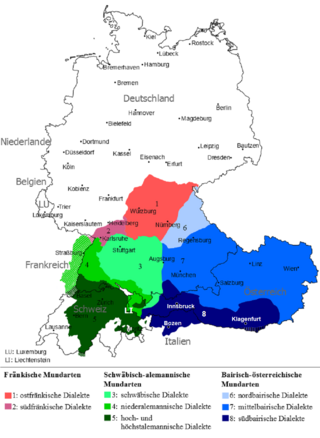
East Franconian or Mainfränkisch, usually referred to as Franconian in German, is a dialect which is spoken in Franconia, the northern part of the federal state of Bavaria and other areas in Germany around Nuremberg, Bamberg, Coburg, Würzburg, Hof, Bayreuth, Meiningen, Bad Mergentheim, and Crailsheim. The major subgroups are Unterostfränkisch, Oberostfränkisch and Südostfränkisch.
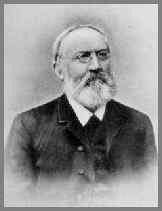
Friedrich Conrad August Fick was a German philologist.

Hermann Hirt was a German philologist and Indo-Europeanist.

Josef Kohler was a German jurist, author and poet.

Otto Max Johannes Jaekel was a German paleontologist and geologist.

Albert Grünwedel was a German Indologist, Tibetologist, archaeologist, and explorer of Central Asia. He was one of the first scholars to study the Lepcha language.
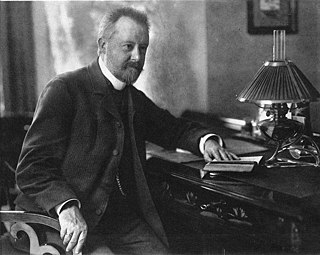
Gustav Falke was a German writer.
Oskar Höcker was a German author of historical novels for children and a stage actor.

Maria Janitscheknée Tölk was a German writer of Austrian origin. She wrote under the pseudonym of Marius Stein.
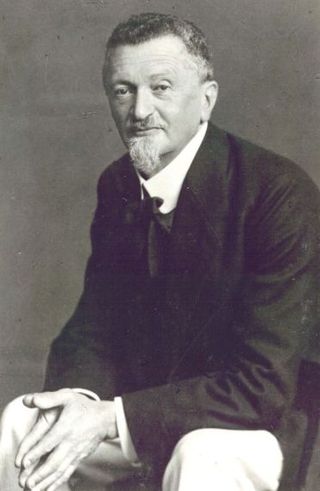
Felix Auerbach was a German physicist.
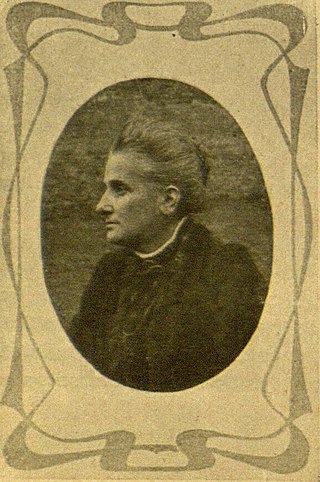
Clara Bertha Friederike von Bülow was a German writer of short stories, comedies and farces.

In Indo-European studies, the salmon problem or salmon argument is an outdated argument in favour of placing the Indo-European urheimat in the Baltic region, as opposed to the Eurasian Steppe, based on the cognate etymology of the respective words for salmon in Germanic and Balto-Slavic languages. The word's wide distribution likely means it existed in its current form in a Proto-Indo-European language.
Ferdinand Sommer was a German classical and Indo-European philologist.
Karl Friedrich Wilhelm Wander was a German pedagogue and Germanist. He published the largest existing collection of German-language proverbs.

Hermann Güntert was a German linguist who specialized in Germanic and Indo-European linguistics.

Georg Hüsing was an Austrian historian and philologist who specialized in Germanic studies and mythography.

Max Ring was a German physician, novelist, poet, and dramatist.
The art collection of Carl Sachs, a Jewish entrepreneur who lived with his wife Margarethe in a villa in what was then Kleinburgstraße in Breslau, before 1939 he emigrated to Switzerland with his wife to escape Nazi persecution, included numerous paintings, watercolors and graphics.
References
- ↑ Wer ist’s? Unsere Zeitgenossen, ed. by Hermann Degener 4 (1909), p. 339
- ↑ Victor Hehn, Culturpflanzen und Haustiere in ihrem Übergang aus Asien nach Griechenland und Italien sowie das übrige Europa: Historisch-linguistische Skizzen (Berlin: Gebr. Borntraeger, 1885); iv + 456 pp.
- ↑ Marija Gimbutas, The Balts (London: Thames & Hudson, 1963), 38.